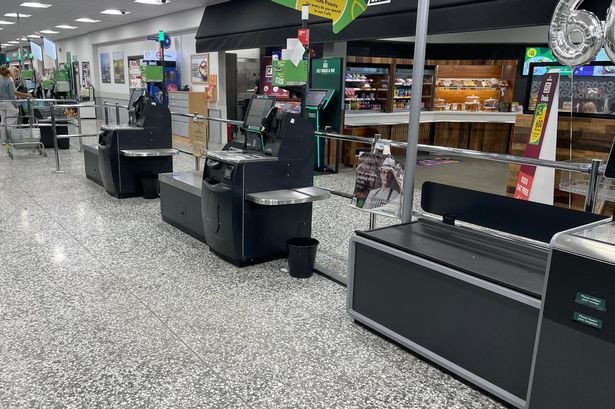An entrepreneur plans to build Britain's first Silicon Valley village from a 245-year-old Napoleonic fort and former prison which will boast a Dragons' Den-style tech-hub, luxury hotel and a vertical indoor farm.
Businessman David De Min hopes to transform the 33-acre fortress Dover Citadel on the Kent Coast into a world-renowned tourist and business destination which will also feature its own whiskey distillery, wellness spa and music and arts venue.
He bought the site from the Ministry of Justice three years ago for £1.8 million but estimates the ambitious project may reach between £200million and half a billion pounds once finished so is currently working on securing funding from undisclosed Emirati Royals among other potential investors.
The oldest part of the fort - perched high on Dover's famous White Cliffs overlooking the coast of France some 20-miles away across the Channel – was built in 1775 and became the first line of defence against Napoleon Bonaparte and his naval fleet.
It was later used as military barracks in the Crimean War and both World Wars but in 1956 the Citadel was handed over to HM Prison Service where it served as a Young Offenders Institution until 2002 when it became an Immigration Detention Centre before closing in 2015.
A New Chapter for the Citadel
In a bold move to revolutionize the UK’s tech landscape, entrepreneur David De Min is spearheading an ambitious project to transform the historic Dover Citadel into what is being hailed as Britain’s first Silicon Valley village. The 245-year-old Napoleonic fort, perched on the iconic White Cliffs of Dover, is set to undergo a dramatic overhaul, aiming to become a high-tech hub, luxury tourist destination, and a symbol of innovation.
Mr De Min, who purchased the 33-acre fortress from the Ministry of Justice three years ago for £1.8 million, envisions a world-renowned centre for both business and tourism. He told MailOnline: "This place has stood for 245 years, first as a foreboding fortress protecting the country and later as a place of incarceration. My hope is that, going forward, teachers will start pointing up and saying: 'If you're good, you may be lucky enough to work there.' I want to make it a place to inspire and innovate."
The Dover Citadel’s transformation is nothing short of ambitious. Plans include the development of a Dragons' Den-style tech hub, a luxury hotel, a wellness spa, and a vertical indoor farm.
The Heart of the Project: TechFort
The former prison block, currently used as a film set, will be redeveloped into state-of-the-art office spaces. It will be renamed the TechFort and will be a 'gathering of start-ups to pursue their ideas for sustainable technology'. Mr De Min’s own construction tech firm – System De Min - will be headquartered there.
He has developed a brick made from expanded clay and pearlite which has an interlocking design similar to Lego that does not require mortar. The bricks also act as insulation but keep their structural integrity and are apparently four times stronger than a regular clay brick allowing homes to be built five-times faster than regular construction.
Mr De Min said he has potential investment from three Gulf States and added: 'We're not trying to reinvent the wheel but instead simplifying current building techniques and making them far more efficient. It will revolutionise the industry. This is the sort of technological advances I want to welcome and encourage at the Citadel.'
A Hub for Innovation and Business
The Citadel comprises 54 individual buildings with about 220,000 square feet of space above ground and around 30,000 square feet below it with a network of subterranean tunnels. Located roughly in the middle of the site is a 1970s-built prison block, made up of more than 60 cells on three levels, once home to young offenders and then migrants who had entered the UK illegally.
Mr De Min has revealed ambitious plans for the ground floor with hopes of building 'a stage complete with lighting and speakers for a Dragons' Den-style TV show' where budding entrepreneurs will pitch ideas for innovations in business and technology. 'In front of the stage will sit five potential investors, all well-known billionaire businessman. I've had the greenlight from Sky TV to start production.'
Mr De Min will not confirm who will be involved, although businessman and former Dragon Duncan Bannatyne is rumoured to be among those approached. The prison will be renamed the TechFort and will be a 'gathering of start-ups to pursue their ideas for sustainable technology. His own construction tech firm – System De Min - will be headquartered there.
Beyond Tech: A Multifaceted Destination
The Dover Citadel's transformation extends beyond tech. The ambitious plans also encompass the development of a luxury hotel and a world-class wellness and longevity clinic. To the left of the old prison and beyond the imposing razor wire perimeter fencing is The Officer's Mess, built in 1861 in the Gothic Revival style with original gun-ports and a bomb-proof, earth-filled roof. It will form phase one of the Citadel project next June when planning permission will be submitted to turn the listed property into a luxury 80-100-room hotel and serviced apartments.
Mr De Min is also considering a whiskey distillery, an arts venue, and a concert space within the Citadel's mile-long dry moat, potentially turning it into one of the world’s most unique event locations. He said: 'They approached us with the idea, we can't give out too much information because we're under an NDA but we could easily do big numbers on it. The moat is on a gradient and so works perfectly as a venue with a stage built at the bottom - imagine lighting on either side of the moat, it would be amazing. You can see the French coast - where else do you have a view like this? It would be one of the most unique gig venues in the world.'
The dusty, dark bowels of the Victorian building are currently home to former punishment cells, which once held wayward soldiers and later disruptive prisoners, who dubbed it 'The Hole'. Mr De Min plans to convert the 24 basement cells into a wine cellar and wine tasting experience as well as a potential cigar bar for the hotel.
A Vision for the Future
The project has generated mixed reactions from locals. "Attracting luxury clientele is not going to affect any of us on the high street," Fiona, a customer service assistant for travel agent TUI, told the Sunday Times. "The town is dying on its feet", Heather Horne, 64, who runs Stanley's coffee bar and lounge, argued. "Anything that brings something to Dover would be brilliant."
David De Min’s vision for the Dover Citadel marks a significant shift in the UK's approach to technology and business, setting the stage for a potential economic revival in this historic seaside town. "Dover is the entry point into the UK from the continent, and I want to show Europe and the world that Britain is still thriving when it comes to technology", he said.
Mr De Min is a champion of 'biohacking' in which people push their bodies to extremes via activities such as fasting and ice-baths to optimise physical and mental performance. He plans to install a world-class wellness and longevity clinic and said: 'We'd have hyperbaric oxygen chambers, laser infused IV drips, cryogenic chambers and ice baths. I'd like the Citadel to have a wellness retreat – similar to what they have in Switzerland – whereby people could stay in the hotel and use the wellness clinic, in which we would customise meal plans based on someone's blood type.'
The grandiose project – which he estimates will take up to 25-years to complete – is being planned from his office at home, the fort and prison's former healthcare centre, where he has seven mainly bunk-bed filled bedrooms, a sauna and make-shift gym. Sitting in a black gaming chair surrounded by a bank of TV screens relaying images from countless CCTV cameras dotted around the site, he added: 'I own the freehold to the Citadel but I feel as though I'm a custodian of one of the most unique sites in the world. It may take ten or 25-years to complete this project but I'm someone who lives for the future, I live by my visions.'
A Legacy for Dover
The Dover Citadel's transformation is a testament to David De Min's vision and ambition. By blending history with innovation, he aims to create a space that fosters creativity, business growth, and economic prosperity for Dover. The project is a bold statement about the potential of the UK's tech scene and the exciting possibilities that lie ahead for this historic fortress.
















